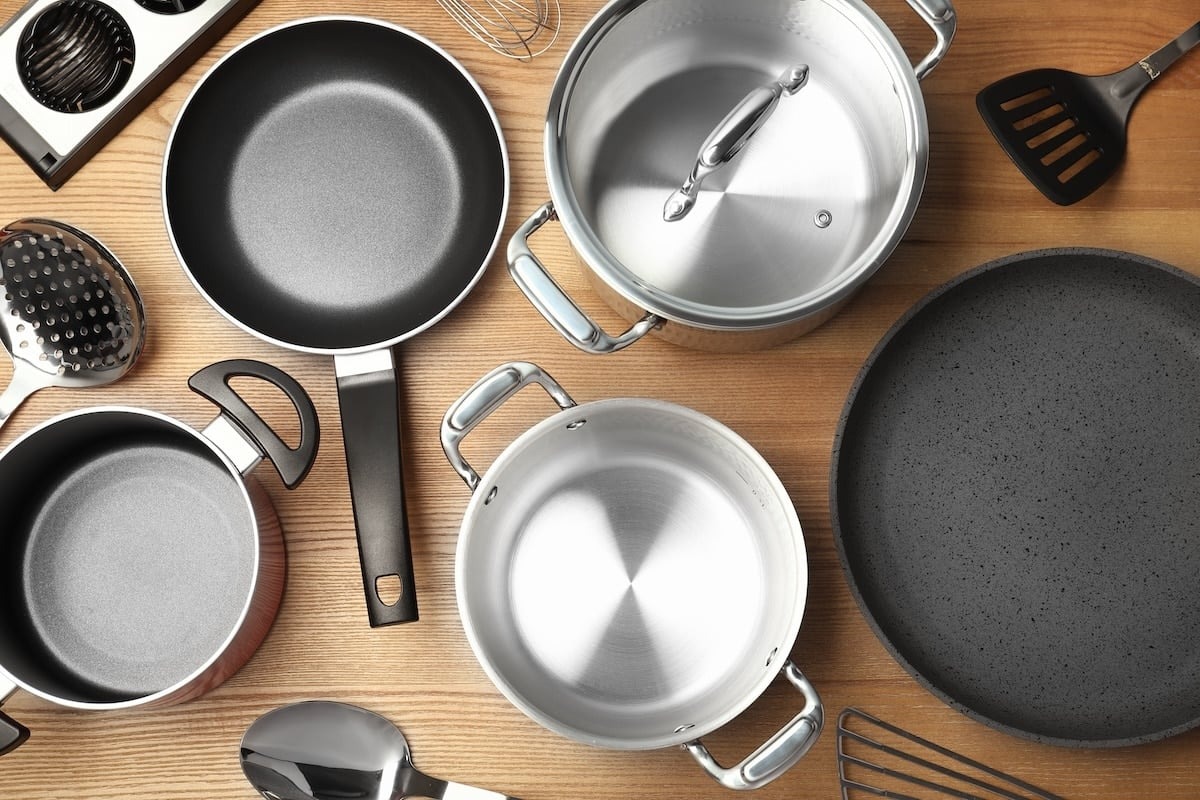From clay pots that our grandmas used to love to iron kadhai (woks) that our mothers say are very beneficial, to nonstick pans that we find convenient, our kitchens are filled with different types of cookware, and we keep switching between them based on what we find on the Internet.
One day, social media tells us ‘aluminium cookware is bad for health’ and there go all aluminium pots and pans. The next day, Instagram is against nonstick cookware, and so are we.
But which cookware should actually be used? Let experts answer this question for you.
Why does cookware matter?
The type of material that cookware is made of can alter the flavour of your food,” chef Babendra Singh, Temple Street, Delhi (Rajender Nagar and Ashok Nagar), tells India Today.
“Different cookware materials conduct heat differently, which can impact how your food is cooked and how it tastes,” the chef adds.

“The cookware in which the food is cooked and served absolutely matters because you are what you eat,” adds Dr Prashant R Rao, senior consultant, gastroenterology and cancer, laparoscopic surgeon, Surya Hospital, Mumbai.
“I see many patients in my practice who come with an upset stomach, and I do feel that the cookware used does play some role in causing these gastric problems,” the doctor says.
Meanwhile, Dr Bhavana Diyora, nutrition coach and preventive wellness specialist, MyGALF (a wellness marketplace) also feels that selecting the right cookware is important as it gets used daily and constantly.
Dr Diyora explains, “Using certain cookware with specific materials for cooking can pose health risks. For example, some materials may release harmful chemicals into food, potentially exceeding daily limits and leading to health issues such as Alzheimer’s disease, anaemia, or respiratory problems. It’s essential to choose cookware that minimises the risk of toxic leaching (a process where substances are dissolved and removed from a solid by a solution) to maintain optimal health.”
Harmful chemicals in food
In India, popular cookware options include stainless steel, aluminium, copper, nonstick, ceramic, iron, and clay (mitti).
As per the experts, some cookware materials can release harmful chemicals into your food, particularly at high temperatures.
For example, the Teflon coating used in nonstick cookware at high temperatures can release a chemical called perfluorooctanoic acid (PFOA) into your food, which can lead to several health issues including cancer.
Aluminium cookware
According to chef Singh, aluminium cookware is known for its excellent heat conductivity, making it ideal for quick and even cooking.
However, uncoated aluminium may react with acidic foods, so it is often used with a nonreactive coating.
Dr Rao agrees and says that although aluminium cookware is cheap and lightweight, it can react with acidic foods causing the metal to leach into the food, leading to high blood aluminium levels, which have been linked with Alzheimer’s disease.
Stainless steel cookware
Dr Diyora explains that stainless steel cookware is generally considered safe for cooking. However, there are concerns about nickel and chromium leaching into food, especially when cooking acidic or salty dishes.
While these levels are typically low and within safe limits, individuals with nickel or chromium sensitivities may want to choose alternative cookware options.
Chef Singh also feels that stainless steel cookware is loved by home cooks and restaurant cooks alike, for good reasons.
Not only are stainless steel utensils endlessly durable, but their pots and pans are also nonreactive and almost completely rust-proof.
